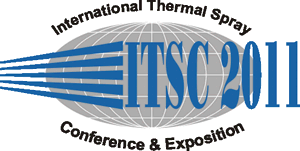
|
2980 |
|
The influence of gas conditions in cold spraying on WC cermet coatings |
|
Junya Kitamura* / Fujimi Incorporated, Japan Kazuto Sato / Fujimi Incorporated, Japan Down Seo/ Tohoku University, Japan Haruhiko Furukawa/ Fujimi Incorporated, Japan Kazuhiro Ogawa/ Tohoku University, Japan |
|
Cold spraying is well known as an attractive coating process that prevents degradation of materials, such as oxidation, decomposition and undesirable reaction due to overheating. High velocity oxy-fuel (HVOF) spraying has been recognized as the most popular technique in particular to produce tungsten carbide (WC) cermet coatings in industrial fields. However, the degradation of WC cermet occurs using HVOF that is quite different from sintered hard metal, which can be defined as an ideal material., Thus, low temperature processes, such as cold and warm spraying, are actively researched to achieve WC cermet coatings, similar to sintered one. In this study, influence of gas conditions in cold spraying on WC cermet coatings has been investigated, where WC-Co, WC-CrC-Ni and WC-Fe alloy are selected. The study reveals that nitrogen gas is effective to form thick, dense and hard coatings of WC-CrC-Ni and WC-Fe alloy compared to helium gas. This implies optimal temperature and velocity of powder jet has been formed when using nitrogen gas. |